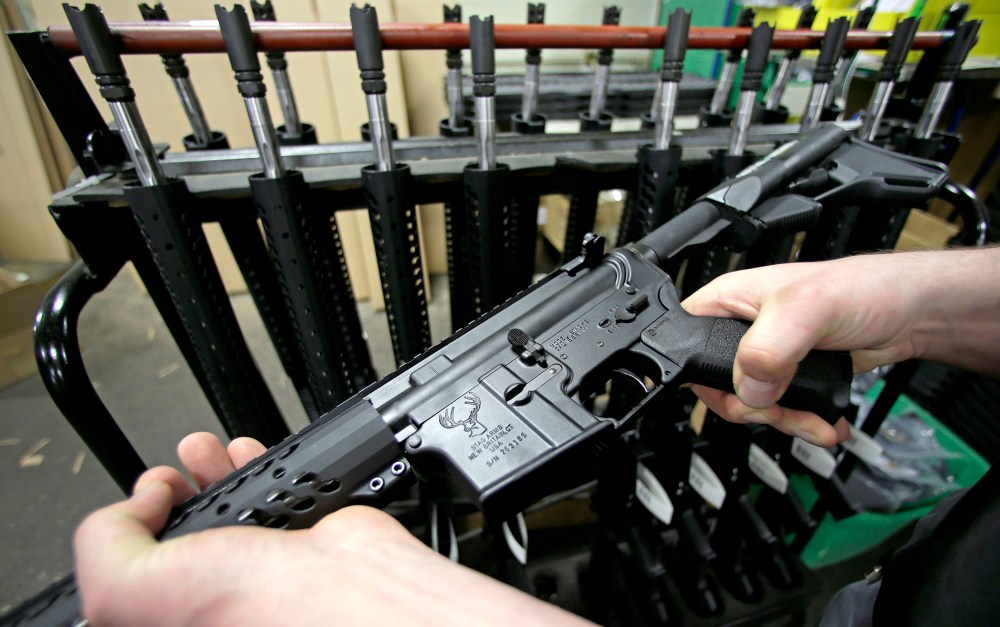A federal court’s decision this week to uphold Connecticut’s assault weapons ban is an important victory for gun safety advocates, transitioning from a year that ended with almost half of all states strengthening reform laws.
Judges in Hartford on Thursday defended the constitutionality of the law, which they said balances Second Amendment gun rights and the Obama administration’s call to reduce violence. Pro-gun advocates sought repeal and sued the state after Democratic Gov. Dannel Malloy signed the historic gun bill into law last April, but the court rejected their argument.

“The court concludes that the legislation is constitutional. While the act burdens the plaintiffs’ Second Amendment rights, it is substantially related to the important governmental interest of public safety and crime control,” U.S. District Judge Alfred Covello, an appointee of former President George W. Bush, wrote in the decision.
Brian Stapleton, who represented all plaintiffs in the action, said he expects to file an appeal to the decision as early as Friday afternoon.
“The decision was not entirely unexpected, but disappointing nonetheless. I respect Judge Covello immensely, but I disagree with what he has decided. We are going to appeal,” he told msnbc.
Malloy’s signature on the legislation was an emotional gesture following the December 2012 mass shooting in Newtown, Conn., that killed 26 people including 20 first graders. The bi-partisan bill required universal background checks for all firearms purchasers, and added more than 100 firearms to the state’s existing ban on assault weapons. It also placed eligibility rules for buying ammunition and banned the sale and purchase of high-capacity magazines.
“The common-sense measures we enacted last session will make our state safer, and I am grateful for the court’s seal of approval,” Malloy wrote Thursday in a statement. “Let’s not forget that this has happened before. In prior instances when Connecticut has passed related firearms laws, there have been similar challenges and they have all been unsuccessful.”
Jonathan Lowy, a lawyer who joined the state’s defense of the case, told msnbc the ruling was the latest sign that courts see a compatibility between gun safety laws and the Second Amendment.
“There is now a growing and substantial body of precedent where courts have virtually unanimously agreed that the Second Amendment allows for a wide variety of reasonable gun laws, including bans on military-style assault weapons and high-capacity magazines,” Lowy said. “It’s almost unanimous among the judiciary that reasonable gun laws short of a total ban are constitutional.”
Almost half of all states passed at least one new law that strengthened control in the 12 months since the Newtown massacre, according to information compiled last year by the Brady Campaign and Law Center to Prevent Gun Violence. California topped the groups’ 2013 Scorecard with the strongest gun-control measures in the country, followed by Connecticut, New Jersey, Maryland, and New York. Arizona, which weakened two laws, ranked last with an “F” grade.
Eleven states didn’t pass any laws related to guns during 2013. But 21 states – from Washington in the West and Minnesota in the Midwest, to Louisiana in the South and Rhode Island in the East – strengthened existing measures or enacted new ones.
Of the 28 that weakened gun laws, 10 also tightened firearms legislation. States with the weakest gun laws typically have some of the highest gun-death rates in the country.
Constructive measures were passed in some states with historically weak gun laws, including Florida and Texas.











